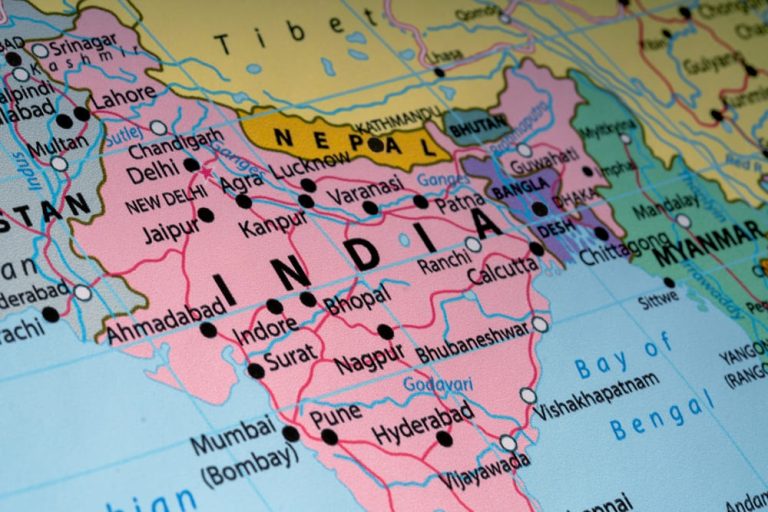South Asia is undergoing significant changes. Countries in the region are growing increasingly resistant to India’s influence. The “India Out” movement is gaining traction in nations like the Maldives, Bangladesh, Nepal, and Bhutan. These nations are now questioning India’s role in their political and economic lives. Once seen as the protector of the region, India now faces accusations of interference and coercion. As smaller nations assert their sovereignty, India’s dominance in South Asia is being challenged.
India’s Role in South Asia
For many years, India has positioned itself as the guardian of South Asia. It has consistently argued that its interventions in neighboring countries are necessary for regional stability. However, in recent years, this view has begun to shift. India’s influence in the region is increasingly seen as self-serving. As China strengthens its presence in South Asia, India has grown more assertive, attempting to counter China’s rising influence.
While India publicly seeks good relations with China, its actions reflect a competitive approach. Consequently, neighboring countries have started to question India’s true intentions. They worry that India is using its power to control them, rather than supporting their development. As a result, India’s role in the region has become increasingly controversial.
Alleged Interference in Neighboring Countries
One of the biggest complaints against India is its interference in the domestic politics of its neighbors. India has been accused of using its intelligence agencies to influence elections and support leaders who align with its interests. For instance, in Bangladesh, the ruling party has maintained close ties with India. Critics argue that India has supported the government and suppressed opposition groups.
Similarly, Nepal, traditionally a close ally of India, has also faced similar accusations. Reports suggest that India has attempted to influence the outcome of Nepal’s elections to install pro-India leaders. Bhutan, too, is growing frustrated with India’s influence. The country’s efforts to engage with China have been limited by India’s pressure. While Bhutan still maintains a close relationship with India, the bond is showing signs of strain.
The Maldives: A Focus of the Movement
The Maldives has become a key battleground in the “India Out” movement. Mohamed Muizzu’s election as president marked a significant shift in the country’s foreign policy. He is strongly opposed to India’s military presence in the Maldives, which contrasts sharply with previous administrations. This change in direction aligns the Maldives more closely with China.
India’s role in the Maldives has sparked controversy for some time. Reports have suggested that India tried to undermine Muizzu’s pro-China government through bribery and political manipulation. Indian intelligence agencies allegedly worked with local politicians, fueling anti-India sentiments. Furthermore, public anger in the Maldives also links to derogatory comments made by Indian officials.
The Maldives holds a strategic location in the Indian Ocean, making it a vital geopolitical player. As China’s influence continues to grow, India’s hold on the country seems to be weakening. This shift in the Maldives is part of a broader trend of countries in the region asserting their independence.
Economic Factors Behind the Movement
The “India Out” movement is not just about politics. Economic factors also play a crucial role. For years, India has dominated trade, investment, and infrastructure projects in South Asia. However, this economic influence is increasingly viewed as a tool of coercion.
Countries like Bangladesh and the Maldives are now looking for alternatives to India. They are building stronger ties with China, the Middle East, and Western nations. In Bangladesh, for example, there is a push to boycott Indian products and media. This movement is not solely about challenging India’s political influence but is also a bid to achieve greater economic sovereignty.
The Broader Shift in South Asia
The “India Out” movement is part of a wider trend in South Asia. Countries in the region are reevaluating their relationships with India. They are seeking more control over their own affairs, distancing themselves from India’s influence. Additionally, the rise of China as a global power has provided these countries with new options. They are no longer dependent on India for trade, security, or political support.
India still holds significant influence in the region. However, its dominance is being increasingly challenged. Countries in South Asia are becoming more vocal in asserting their independence. This shift marks a new era in regional politics.
The “India Out” movement signals change in South Asia. It reflects the growing desire of countries in the region to assert their sovereignty and reduce India’s influence. As China’s presence in the region continues to grow, India’s role is being questioned. This shift in political and economic alignments will likely have long-term consequences for the future of South Asia. The countries in the region are now exploring new partnerships and opportunities for growth.
For more information on South Asian politics, visit Nepal Monitor.


